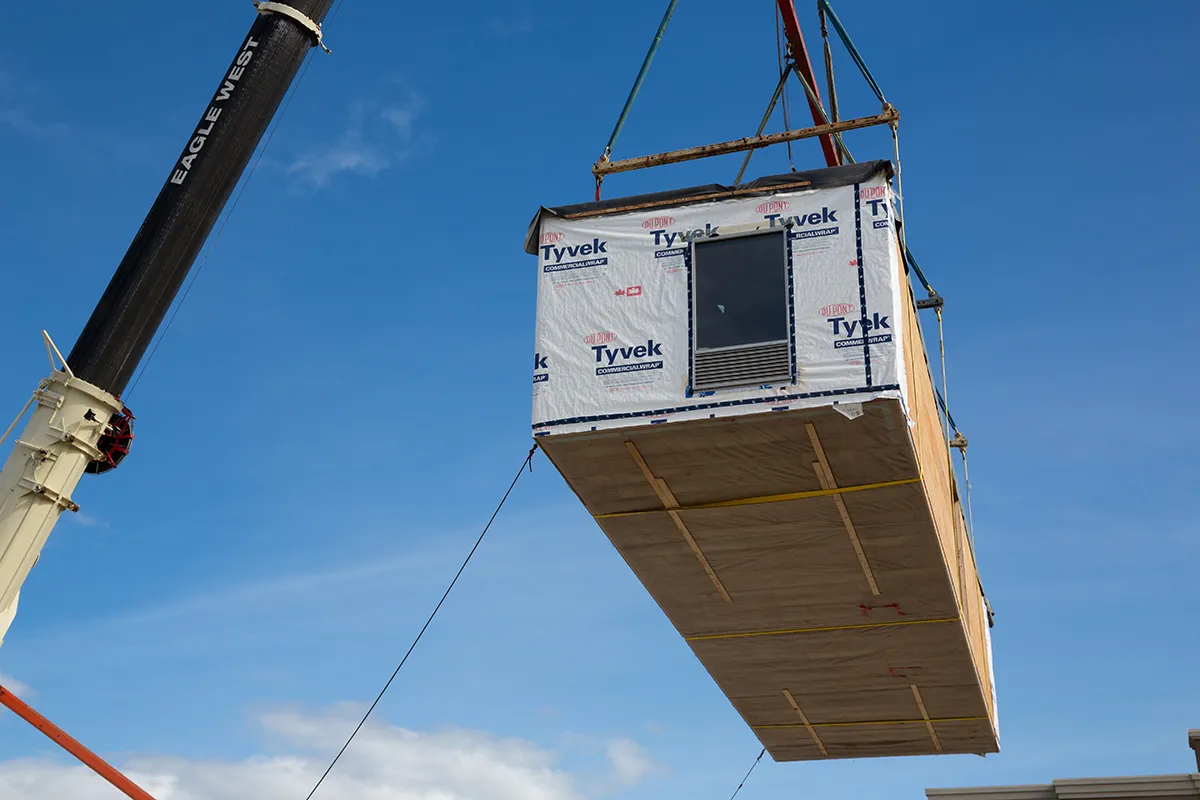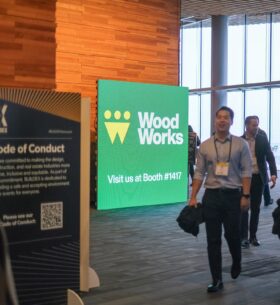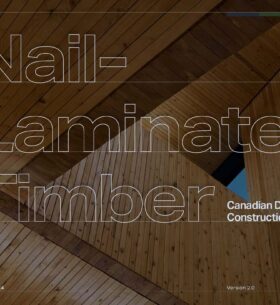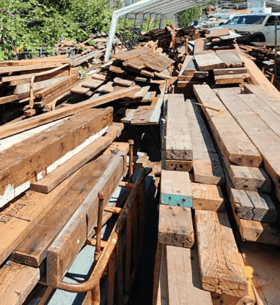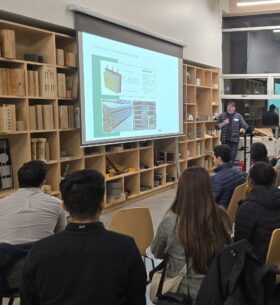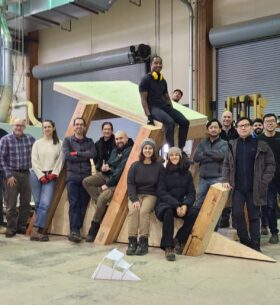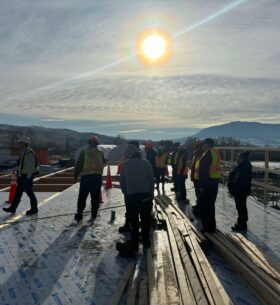Strengthen BC’s capacity to produce competitive wood-based products and building systems that create and respond to market demand.
Program Overview
Planning and delivery of the Wood First program is a collaborative effort involving the building construction industry, government and the forest sector. Based on recommendations from an advisory group representing a cross-section of primary and secondary manufacturing industries and wood product end-use sectors, FII develops an investment plan that allocates funding on an annual basis.
Activities under the Wood First program are delivered primarily through third-party organizations under a cost-sharing framework between FII and industry. Initiatives are based on the understanding that long-term sustainability of the forest economy includes actively maintaining, creating and diversifying demand for BC forest products.
Photo: Modular Housing Construction | Credit: Jason Babakaiff Photography, courtesy Blackbox Offsite Solutions
